Properties of Lead
- Physical Properties: Lead is a soft, malleable metal with a bluish-white color when freshly cut. It has a relatively low melting point and boiling point compared to other metals.
- Chemical Properties: Lead is resistant to corrosion, making it useful for various applications. However, it can react with certain acids and forms lead compounds, which can be toxic.
- Toxicity: Lead is a neurotoxin that can cause serious health effects, especially in children. It can affect the nervous system, kidneys, and other organs. Exposure to lead should be minimized to prevent poisoning.
Uses of Lead
Lead has been used in a wide range of applications, including:
- Building construction (e.g., roofing, piping, and sheathing materials)
- Batteries (although this use has declined due to environmental concerns)
- Ammunition and firearms
- Weighting and shielding (e.g., in x-ray machines and nuclear reactors)
- Pigments (e.g., lead-based paints)
Environmental Impact
Lead pollution can occur through various sources, including industrial processes, mining activities, and the use of leaded gasoline. Once released into the environment, lead can persist for many years and contaminate soil, water, and air. This contamination can have detrimental effects on ecosystems and human health.
Study Guide for Lead
When studying lead, it is important to focus on its properties, uses, and impact on health and the environment. Consider the following questions:
- What are the physical and chemical properties of lead?
- How has the use of lead changed over time, and what are the reasons for these changes?
- What are the health effects of lead exposure, and how can they be prevented?
- What are the major sources of lead pollution, and what measures can be taken to reduce lead contamination?
By understanding the properties and effects of lead, we can make informed decisions about its use and take steps to minimize its negative impact on our health and the environment.
[Lead] Related Worksheets and Study Guides:
.◂Science Worksheets and Study Guides Eighth Grade. Organic compounds
Study Guide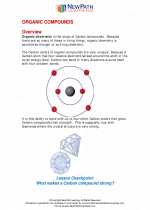 Organic compounds
Organic compounds  Worksheet/Answer key
Worksheet/Answer key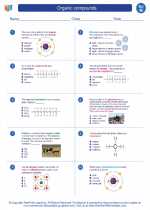 Organic compounds
Organic compounds  Worksheet/Answer key
Worksheet/Answer key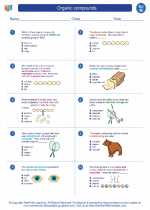 Organic compounds
Organic compounds  Worksheet/Answer key
Worksheet/Answer key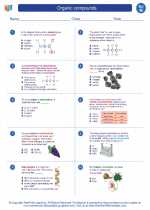 Organic compounds
Organic compounds  Vocabulary/Answer key
Vocabulary/Answer key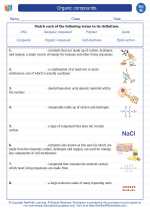 Organic compounds
Organic compounds  Vocabulary/Answer key
Vocabulary/Answer key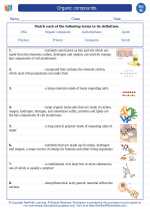 Organic compounds
Organic compounds 

 Worksheet/Answer key
Worksheet/Answer key
 Worksheet/Answer key
Worksheet/Answer key
 Worksheet/Answer key
Worksheet/Answer key
 Vocabulary/Answer key
Vocabulary/Answer key
 Vocabulary/Answer key
Vocabulary/Answer key

The resources above cover the following skills:
Physics: Students will use scientific skills and processes to explain the interactions of matter and energy and the energy transformations that occur.
Thermodynamics: Identify and explain that heat energy is a product of the conversion of one form of energy to another.
Identify and describe the various forms of energy that are transformed in order for systems (living and non-living) to operate: Chemical - Flashlight-Light; Mechanical - Pulleys-Motion; Solar/Radiant - Solar calculator; Chemical - Plant cells.